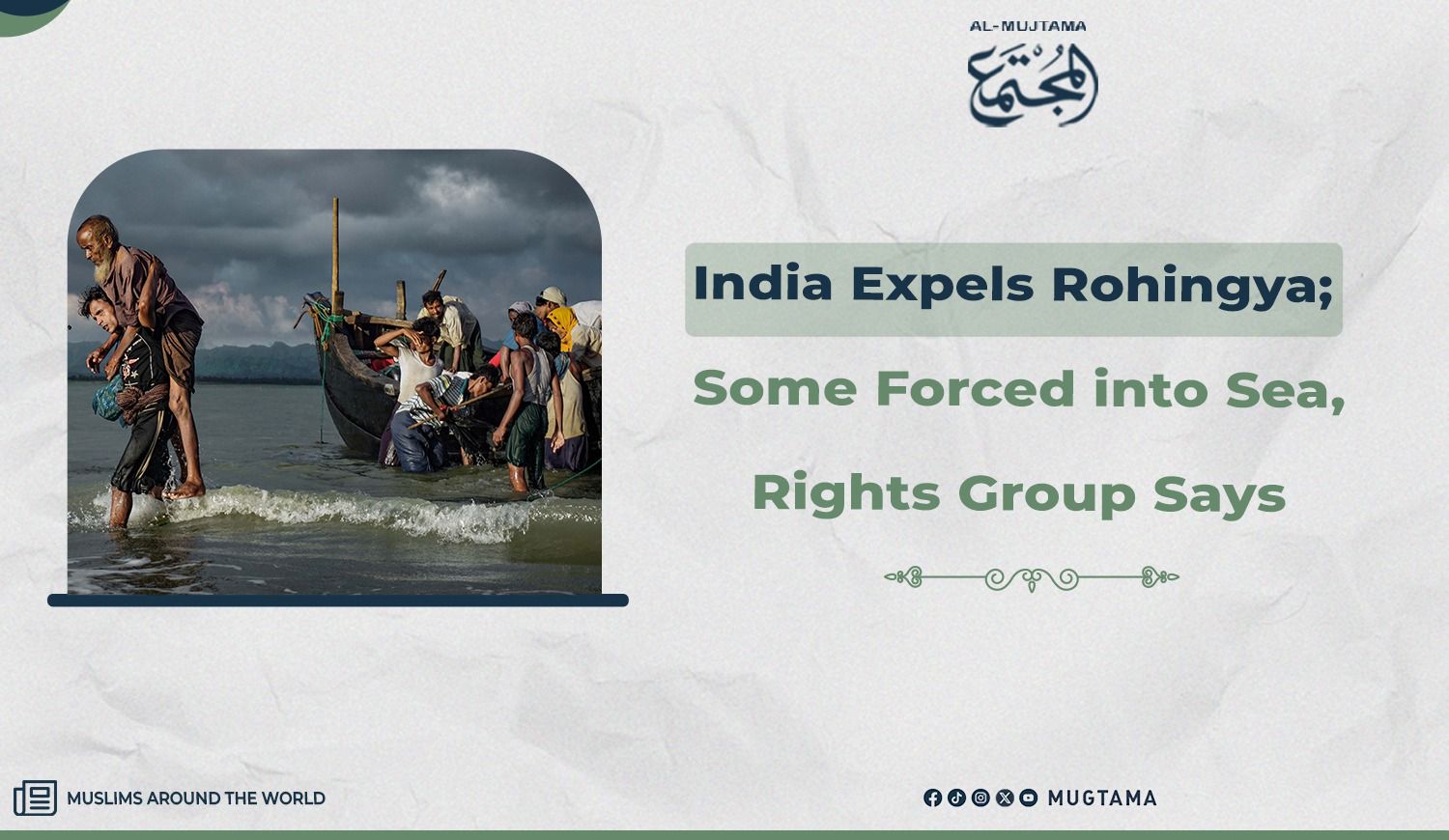Indian authorities' unlawful expulsion of Rohingya refugees
India Expels Rohingya; Some Forced into Sea, Rights Group Says

Since May 2025, Indian authorities have been expelling Rohingya refugees to Bangladesh and Myanmar without proper legal protection, a move criticized by Human Rights Watch as a violation of international law. These expulsions are part of a campaign by the Hindu nationalist Bharatiya Janata Party (BJP) to deport what it calls "illegal immigrants."
Widespread mistreatment and arbitrary detention
An article published on the United Nations website highlights
several cases of these expulsions and points to the mistreatment of refugees by
Indian authorities under the extremist and racist BJP
government. It states that at least 192 Rohingya refugees, including some
registered with the United Nations High Commissioner for Refugees (UNHCR), were
expelled to Bangladesh. In a shocking incident, 40 Rohingya refugees were
reportedly put on a ship near the coast of Myanmar and forced to swim to shore.
Human Rights Watch interviewed nine Rohingya individuals who had recently
arrived in Bangladesh from India. Six of them said that Indian authorities
assaulted them and confiscated their belongings, including money and UNHCR
cards. The other three fled to Bangladesh for fear of arbitrary arrest after
receiving threats from the Indian police.
The number of Rohingya residing in India is estimated at
around 40,000, at least half of whom are registered with the UNHCR. Although
India is not a signatory to the 1951 UN Refugee Convention, it is bound by the
principle of non-refoulement under customary international law, which
prohibits the return of people to places where their lives or freedom are
threatened.
Specific testimonies of abuse
This is based on specific testimonies from an article
published on the UNHCR
website. A 37-year-old woman stated that Indian Border Security Force officials
forced her family into Bangladesh at gunpoint. She said her husband was slapped
and beaten so badly that he suffered hearing loss for asking where they should
go. Another account describes how 40 Rohingya were detained in Delhi, flown to
the Andaman and Nicobar Islands, and then forced onto an Indian naval ship. The
crew reportedly beat and interrogated them before forcing them to jump into the
sea near the coast of Myanmar.
Tom Andrews, the UN Special Rapporteur on the human rights
situation in Myanmar, commented that the incident shows "a blatant
disregard for the lives and safety of those who require international
protection." Another refugee, a 40-year-old man from Hyderabad, recounted
how his family was beaten by police at a train station and had their money and
belongings confiscated. They were then forced to record a video stating that
they were from Bangladesh and trying to enter India before being pushed across
the border.
The UN Special Rapporteur
had previously written to the Indian government to express concern about the
widespread and indefinite arbitrary detention of refugees, as well as the poor
detention conditions. The article mentions that the policy toward the Rohingya
changed in 2017 when the extremist and racist BJP government issued
instructions to deport "illegal foreign nationals."
Escalating insecurity and legal challenges
The expulsions have created a climate of insecurity for the
remaining Rohingya in India. In Jammu, refugee shelters have been vandalized,
and at least 30 refugees have been arbitrarily arrested. The Supreme Court of
India is set to decide whether the Rohingya are "refugees" or
"illegal entrants," although it refused to halt the deportations last
May.
Human Rights Watch has called on the Indian government to
immediately stop the intimidation, arbitrary detention, and unlawful expulsion
of all Rohingya refugees, and to conduct an impartial investigation into the
allegations of mistreatment. It has also urged India to recognize the Rohingya
as refugees and to cooperate with the UNHCR to protect their rights.
------------
For further
readings:
IICO
Provides 175 Safe Homes to Shelter 1050 Rohingya Refugees in Bangladesh











